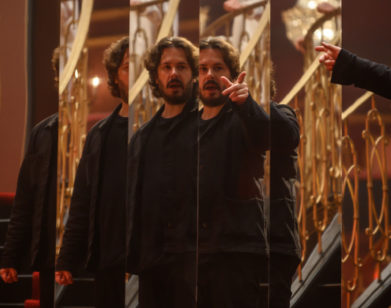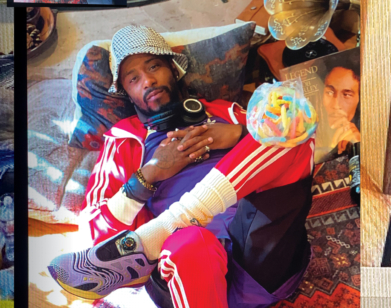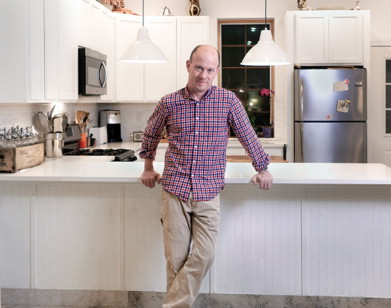Cary Fukunaga Tells Miranda July How Bond Nearly Broke Him
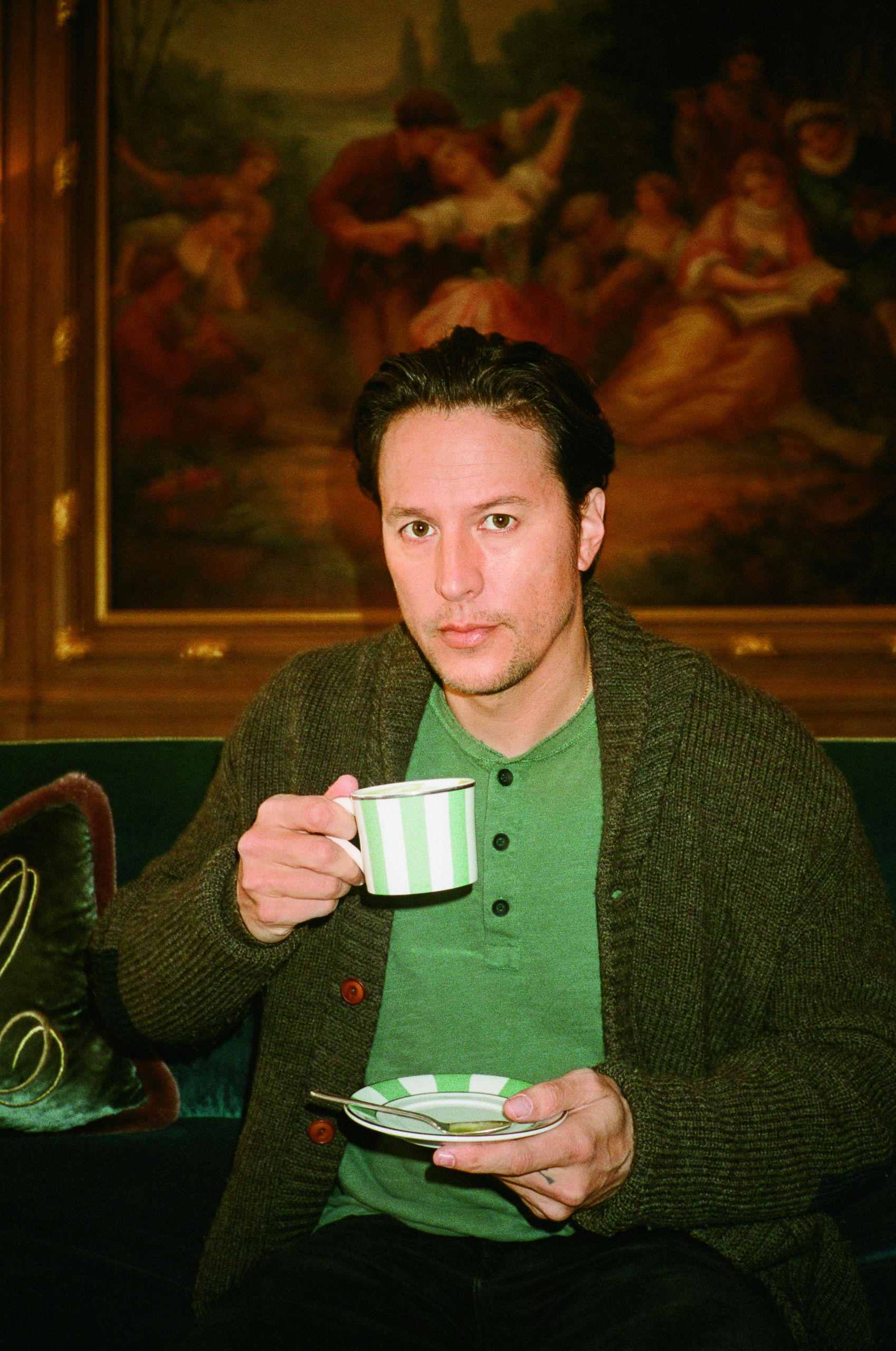
Cary Joji Fukunaga can see the finish line. On a dreary winter’s day in London, the director finds himself on the final leg of a furious 18-month sprint to bring No Time to Die, the latest installment in the everlasting James Bond saga, to theaters. (Originally scheduled to be released in April, the film was moved to November amidst coronavirus fears.) Fukunaga, whose work on season one of HBO’s True Detective (2014) elevated him from a respected art-house auteur into one of the most in-demand directors in Hollywood, was hired to shepherd the film after its original director, Danny Boyle, left the project in 2018. The unexpected turbulence caused the movie, said to be Daniel Craig’s last as England’s most infallible superspy, to fall behind schedule, putting added pressure on Fukunaga to deliver it on time. With some help from Phoebe Waller-Bridge, the 42-year-old filmmaker co-wrote a script that was adjusted to fit the temperature of the #MeToo era, before going full speed ahead on a production that cost $250 million dollars and spanned the globe. Now that Fukunaga has almost reached the end, hitting the breaks, he explains to his friend Miranda July, is going to be the hard part.
———
MIRANDA JULY: Where are you?
CARY JOJI FUKUNAGA: I’m in London. I’m just coming back from a round of meetings. The visual parts of the movie are locked, and we start sound on Monday.
JULY: Do you like that part?
FUKUNAGA: It’s great to finally hear what the movie is supposed to sound like after so many conversations about it. But I was talking to someone recently about how there’s this anticlimactic part of finishing a film where there are just fewer and fewer people in the room, until it’s just two people doing the quality-control check, and then that’s it. No confetti or champagne.
JULY: I just finished a movie and the last screening was like that. I remember being really dependent on what the projectionist thought.
FUKUNAGA: It’s like, “Someone tell me this isn’t a complete disaster.”
JULY: Was this movie a tough one or a fun one?
FUKUNAGA: The fun bits will probably come about more in hindsight. It’s felt like climbing up a mountain every day without ever seeing the summit. What was the movie you just finished?
JULY: It’s called Kajillionaire. It comes out this summer. I wasn’t in it, so that made it a bit easier.
FUKUNAGA: You’ve always been in your movies.
JULY: This is the first one where I was like, “I can see it all while I’m making it.” I’m not like, “I wonder what the actor who I’m talking to who’s behind me is doing, and do we have time for me to look?” I felt much more like I could play with degrees of control rather than feeling so anxious about that all the time. But we’re here to talk about your movie.
FUKUNAGA: I did not put myself in my movie.
JULY: Oh, you’re not James Bond?
FUKUNAGA: I am definitely not James Bond.
JULY: I’ve never seen a James Bond movie, so I’m definitely the right person to be doing this. Were you into James Bond before this?
FUKUNAGA: Yeah. I don’t think I’d seen every single James Bond film, but I was pretty well-versed on it. I don’t think I became a fan of the franchise until Casino Royale. Prior to that, my only in-depth James Bond experience was at my cousin’s house playing Golden Eye.
JULY: A James Bond video game? To a purist, that doesn’t really count. And as someone who’s never seen a James Bond movie, I’m going to take the stance of being a purist.
FUKUNAGA: You’re already a gatekeeper of a film you’ve never seen.
JULY: Let’s talk about Daniel Craig. I’m always confused by really manly-men actors, because acting is very fluid. He’s probably done a lot of weird breath-work and sensing exercises. None of these manly men are really like that. You automatically know, if they’re an actor, they’re not really a James Bond type of person, you know?
FUKUNAGA: Are you asking if Daniel Craig is a theater geek?
JULY: I feel like I just know he is.
FUKUNAGA: We didn’t do any icebreaking exercises together, so I don’t really know how versed he is in all the theater games you do to find yourself in a character.
JULY: I mean, he doesn’t do them now, but he did at one point. And he probably had a bisexual moment.
FUKUNAGA: [Laughs] Do all male actors go through a bisexual moment?
JULY: You’re rehearsing late. You go out afterward. Who’s who? What’s what? Nobody really knows.
FUKUNAGA: Whose finger is that?
JULY: So what are we to think of men like him? I feel like the world at large believes it. Little boys are like, “I want to be a man like that.” And I always want to be like, “There may actually not be any men like that.”
FUKUNAGA: It’s hard to say. I wouldn’t say I know every facet of Daniel Craig, even after having worked with him for almost a year, but I can definitely say for a fact, the manliest man I’ve worked with was Idris Elba.
JULY: He is?
FUKUNAGA: Yeah. That man is always a man.
JULY: So Daniel Craig would be below him in manliness?
FUKUNAGA: [Laughs] Idris just exudes manhood, whereas Daniel can also exude it, but then again I could see the theater geek in him when he gets excited about something.
JULY: Well, that’s reassuring. The Divine Feminine is somewhere in Daniel Craig. Do you have any magical stories about Ana de Armas? I only want to hear them if they’re magical. And I understand we’re not saying Bond Girl anymore, but it is weird how when you say Bond Woman or Bond Person, they suddenly seem involved in bail bonds or something.
FUKUNAGA: [Laughs] Ana told me before we started shooting that she never exercises. But then they had her out there getting prepped for military training, like how to operate weapons and move tactically. Watching her fire guns while still being 100 percent herself was magical, because she somehow could be tough but still look like she was having the time of her life. She liked the firepower.
JULY: Do you have a workout regimen to which you adhere?
FUKUNAGA: I’m trying to. During the shoot, I feel like I stopped moving as an animal and started slowly becoming some kind of inanimate object. I could feel my body deforming. But I’m not really a gym person.
JULY: I did the same thing after I finally finished. I was like, “Oh my god, I might die if I don’t start really working out.”
FUKUNAGA: I felt like I was turning into Mr. Burns from The Simpsons. Shriveling into the earth.
JULY: And other people can’t see it. You still look like you, but you just feel so bad.
FUKUNAGA: I feel much better now.
JULY: Okay, good. You’re uncurling. Phoebe Waller-Bridge worked on the script. Were they like, “Make this more feminist and better.”
FUKUNAGA: Those words, I can guarantee you, were never said.
JULY: Really?
FUKUNAGA: Well, first of all, Barbara Broccoli, one of the main producers, is either the first or second most successful female producer. Feminism is something she has slowly been turning up the dial on for decades. The inclusion of a new female 00 agent had come from Barbara. I only found out through working with her that she had wanted to do a spin-off of Jinx, which is Halle Berry’s character in Die Another Day. The female characters in the film, who they are and what they stand for, was definitely something Barbara had already had in mind. And Phoebe—who is a brilliant writer regardless of her gender, but is writing really fun and more fully fleshed-out female characters than anyone else right now—brought a lot of ideas about how to make the characters we already had that much more interesting.
JULY: I should state that the movie is set to come out in April. I’m wondering if it was timed for Easter, seeing how Jesus also had no time to die.
FUKUNAGA: [Laughs] Who told you that?
JULY: Is there anything there?
FUKUNAGA: No, I think that all came about through desperation. We were originally going to release the film in November, but when Danny Boyle left the project and I came onboard, there was a whole reset. So we pushed it back to March, and then I was fighting to push it back even further, because I just didn’t think we had enough time to finish it. Something I hadn’t realized, even until now, is how far in advance studios swoop up these windows for their films to come out, in order to give them the best chance of having a good box office.
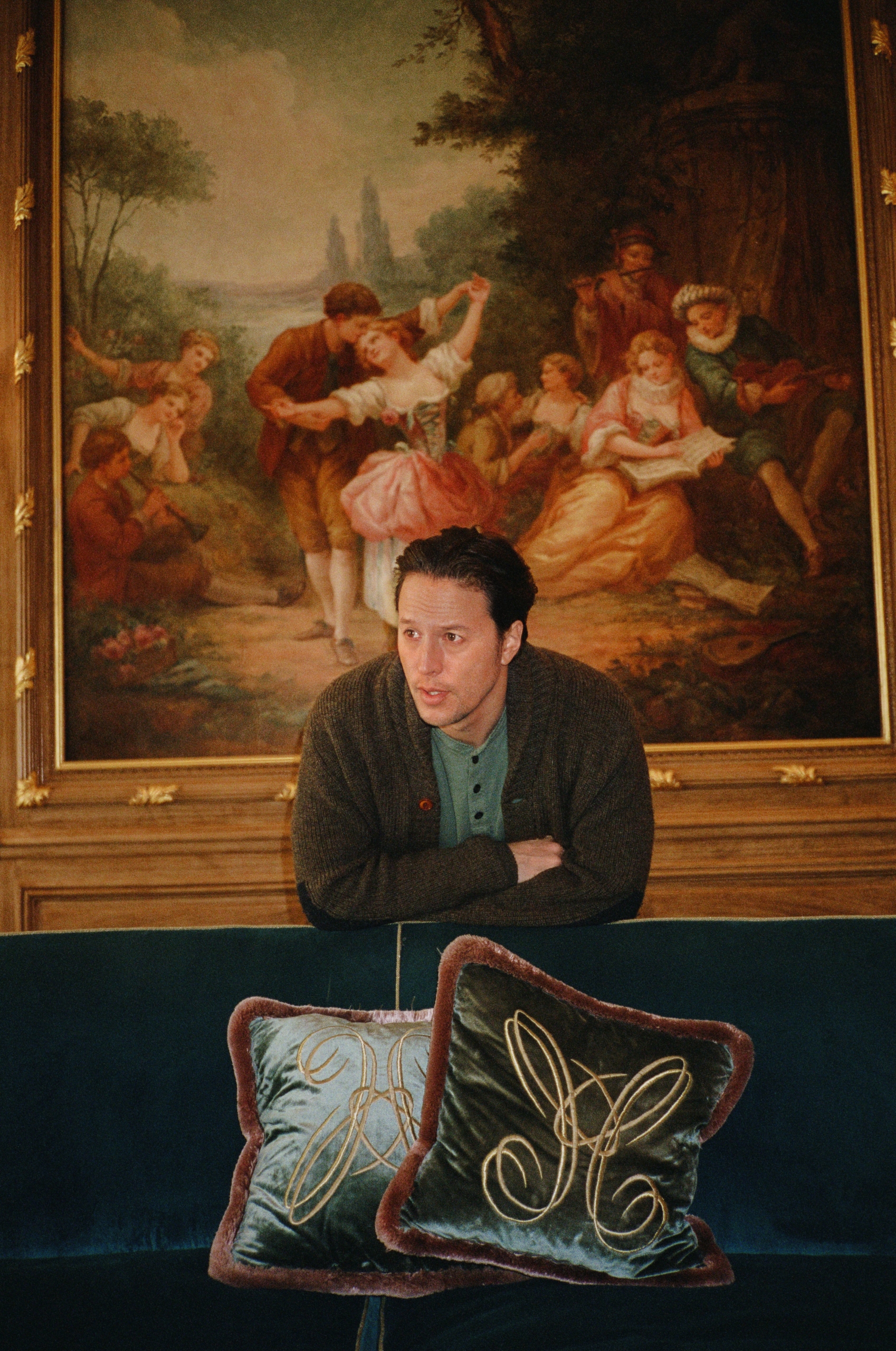
JULY: Oh, god.
FUKUNAGA: So that’s not stressful.
JULY: I watched the trailer, and there’s a moment when someone says, “You have no idea what this is, do you?”
FUKUNAGA: Léa Seydoux’s character says it.
JULY: That made me think that maybe this movie moves into a metaphysical, spiritual realm. Is that true?
FUKUNAGA: Miranda, I swear to god, I had an idea that this movie could all be taking place inside the villain’s lair from the last film. There’s this scene where a needle goes into James Bond’s head, which is supposed to make him forget everything, and then he miraculously escapes by a watch bomb. And then he and Léa blow up the place, and go on to save the day. I was like, “What if everything up until the end of act two is all inside his head?”
JULY: I think the movies I make or books I write speak to some mystery I’m grappling with at that time in my life. Is your work like that for you?
FUKUNAGA: Like a reflection of right now?
JULY: Yeah, you look back and you’re like, “Oh, right, this was the ghost I was fighting with at that time.” It’s not that you resolve it, but you’ve done some worthwhile wrestling.
FUKUNAGA: I feel it at times. It’s so hard to separate the project from a chapter in my life. Everything that’s happening—relationship issues, family issues—is in there. Especially being a writer on this one, it’s impossible that there’s not that contamination between the two worlds.
JULY: Lighting up from within, I would say, rather than contamination.
FUKUNAGA: I mean contamination in the sense of things crossing over in unexpected ways.
JULY: Can you say one thing from your own life that you were surprised that you put into this?
FUKUNAGA: It was interesting putting my relationships into this movie. Not that I consider Bond an equivalent of my life or my romantic life at all, but what I was able to process this year definitely is part of what goes into this story.
JULY: I’m going to look for that.
FUKUNAGA: Complicated, paranoid relationships.
JULY: When I sit down with a good friend I haven’t seen in a while, I want some sense of order to our conversation, so I often ask, “What are your top-three concerns?” Can you give me a version of that for you right now?
FUKUNAGA: Can you say that one more time in simpler terms?
JULY: What’s keeping you up at night, besides this movie?
FUKUNAGA: This movie is taking up so much air. Since it started, it’s been all-encompassing—in urgent status since the very beginning. It’s been 18 months, and by the time we finish, to suddenly go back into life—that mysterious, unknown frontier I’ll cross once this is all done—is the thing I’m least looking forward to.
JULY: I was terrified of that, too.
FUKUNAGA: It feels like I’ve been going 170 miles per hour. And whatever that is—it could be a cliff, it could be a mountain, it could be a wall—I haven’t hit it yet.
JULY: And you know it’s not going to be pretty. As much as you’re looking forward to it, we’re old enough now that we know that’s not usually a painless and graceful transition.
FUKUNAGA: I’m trying to figure out what I can do that’s not a full stop.
JULY: I often throw myself into a lot of things. It can be a really creative time. You have the energy of a plane when it lands and is going incredibly fast on the ground. You have all these muscles and superpowers coming off what you just did. And those will run out, but you can sometimes quickly apply them to something. And for a moment, it’s like you’re a genius civilian.
FUKUNAGA: I thought about doing a silent retreat, then I was like, “That’s probably the worst idea in the world.”
JULY: You would lose your mind. Have you done one before?
FUKUNAGA: No, but I’ve always wanted to. I think I want to do something where I’m not thinking, and I haven’t figured out what that is. What else can I tell you?
JULY: Do you have any dietary restrictions? What are your days like? How does it feel to be you? Do you sleep easily? Do you wash your face?
FUKUNAGA: We can rapid-fire these. I don’t have any dietary restrictions, but I do like a warm lunch. Sleeping has been sporadic this last year, but that’s probably mainly due to stress. I usually love to sleep, and I especially love to nap. I don’t really wash my face that often. I mostly moisturize.
JULY: You don’t need to wash your face.
FUKUNAGA: It’s so dry in London. My face gets so dry here.
JULY: You can just splash water on it, just to get any debris off. Any trash that’s accumulated on your face. What’s it like inside your head? Is there a voice?
FUKUNAGA: I think being inside my head is a bit like when you’re trying to watch TV and your friend has the remote control. You see a channel that’s interesting, and they fly by it.
JULY: Do you find yourself telling yourself to do things?
FUKUNAGA: Definitely. My dad said, “It’s always fine to talk to yourself as long as you don’t answer.”
JULY: That’s when it gets tricky. What are you going to go do now?
FUKUNAGA: I’ve got one more phone call, and then I want to go home and just—
JULY: Not wash your face.
This article appears in the March 2020 issue of Interview Magazine. Subscribe here.
———
Grooming: Liberty Haynes at Carol Hayes Management
Production: Krista Worby
Special Thanks to Danny Boyle


